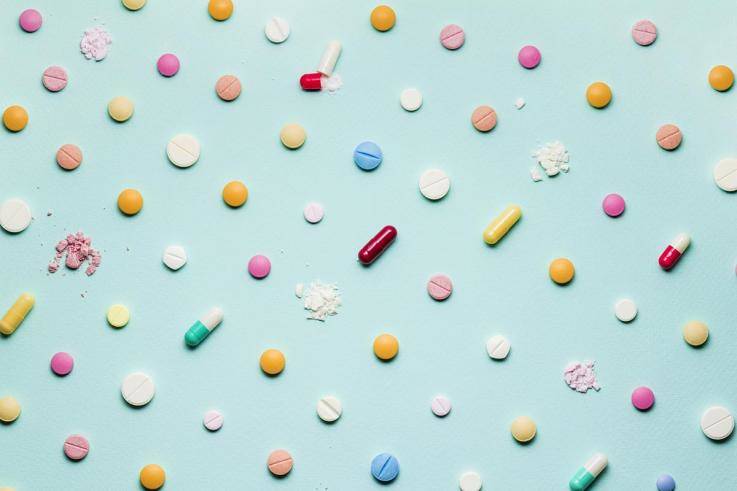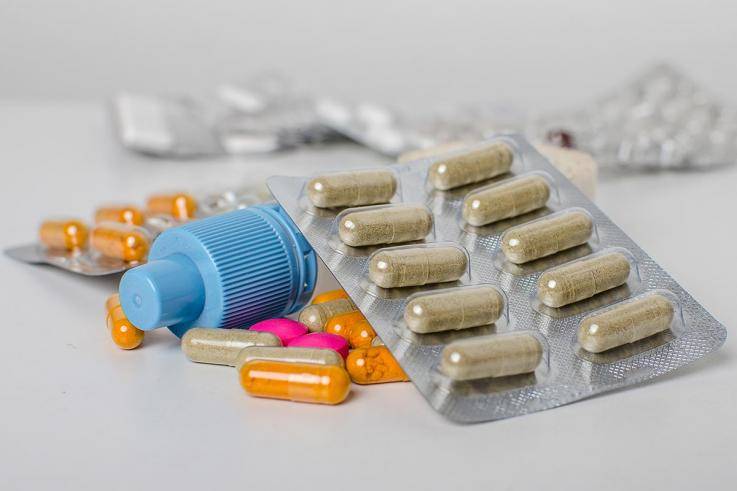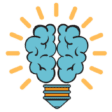If you never heard of Nootropics before, Nootropics 101 might be a good quick start to familiarize yourself with this universe.
By Eve Watling for Newsweek (not that I have any doubt whatsoever)
Nootropics are drugs, supplements and other substances believed to enhance brain power.
There are nootropics designed to boost memory, concentration, motivation and even happiness. The term encompasses a number of substances, both natural and synthesised, over the counter and prescription, legal and illegal.
The common kitchen spice turmeric can be a nootropic, but so can Ritalin, Sunifiram, even LSD.
The word nootropics is a portmanteau of the Greek words nous (“mind”) and trepein (“to bend or turn”).
It was coined in 1972 by Romanian scientist Corneliu Giurgea, who invented Piracetam, an early cognition-enhancing drug said to improve memory and learning. Giurgea was clear about the radical potential of nootropics: “Man will not wait passively for millions of years before evolution offers him a better brain.”
The thought of bypassing natural brain chemistry to suppress unwanted feelings and enhance creativity, memory and other brain functions, has long been the stuff of science fiction, from Brave New World to Flowers for Algernon to the 2011 Bradley Cooper movie Limitless. It’s growing appeal is understandable as regulations around cannabis loosen and options for optimizing our minds and bodies for peak performance grow.
A 2017 International Journal of Drug Policy study found that nearly 30 percent of Americans said they had used smart drugs at least once in the last year, up from 20 percent in 2015.
The culture of self-improvement dovetails with an unstable jobs market increasingly built on freelance work and zero-hour contracts. In this climate, the imperative to be better version of yourself can seem less like a bonus and more like a necessity. “There has been a lot of interest in improving cognitive capacity as job markets and higher education get more competitive,” Dr. Kimberly R. Urban, who has researched the effects of Ritalin on developing brains, told Newsweek . “People are desperate for any edge they can get that they feel may give them a better chance of success.”

Bradley Cooper in 2011’s ‘Limitless,’ which explores nootropic use.
Globally, the market for brain supplements is expected to grow from $2.3 billion in 2015 to $11.6 billion by 2024. To meet that rising demand, a nootropics industry has built up in San Francisco, where hyper-efficient creativity is seen as the Holy Grail and other performance-enhancing strategies, like sleep tracking and intermittent fasting, are all the rage.
While they’re garnering millions in sales and investment dollars, these companies aren’t without controversy: A study commissioned by HVMN found that one of its supplement was less effective than coffee. One NIH report connected nootropics to an increased likelihood of obsessive-compulsive disorder and addictive behaviors.
*cough* no reference *cough*
And there’s the ethical dilemma: if they work, do nootropics give an unfair advantage to students and workers who can afford to use them?

How Do Nootropics Work?
Nootropic aficionados are known to mix and match a bewildering array of cognitive enhancers, depending on their own individual brain chemistry and life goals. These cocktails, designed to create the perfect individual recipe for peak performance, are known as “stacks.”
There’s an infinite combination of stacks, and because everybody’s brain chemistry is different, the only way to know which cocktail works for you is to experiment. On the Reddit thread r/Nootropics, users discuss their stacks, ask for advice and even post pictures of their crowded medicine cabinets. One user listed his stack for turning into a morning person, which includes the amino acid arginine (said to improve circulation), ginkgo biloba (for better brain function) and bromelain, a compound derived from pineapple said to boost the immune system. His stack also includes more traditional biohacks like saunas, cardio training and drinking coffee.
One redditor asked about taking stacks while pregnant; another wondered if DNA testing made anyone alter their nootropics usage. Some users admit spending hundreds of dollars on their stacks every year.
David Pearce, cofounder of the nootropics advocate group Humanity Plus, takes a cocktail of nootropics that includes the antidepressant amineptine and the Parkinson’s drug selegiline, which also works as a mood enhancer. (Pearce also downs zero-calorie Red Bull.) “My main personal interest has been in finding sustainable mood-brighteners that don’t impair intellectual function—and ideally, sharpen it,” he told Newsweek. He says these drugs make him “function better in a harsh Darwinian world.”
But he does see the downside to the lack of regulation: “A vast unregulated drug experiment is currently unfolding across the world with the growth of online pharmacies selling all kinds of pills and supplements,” Pearce says. “Many of the scientific studies often cited are small, unreplicated, poorly controlled, and don’t disclose source of funding. [And] publication bias is endemic.”
“Acute action and long-term effects of nootropics aren’t always carefully distinguished,” he adds: “the brain has an incredibly complex web of negative feedback mechanisms. Online merchants are obviously trying to make a profit, so they aren’t impartial sources of information.”

Research into some gentler nootropics, like the L-theanine compound found in green tea, generally indicate improvements in brain function.
Are Nootropics Regulated?
Most nootropics are classified as dietary supplements, not medications, which means that the claims made on their labels undergo much less scrutiny than prescription pharmaceuticals.
“Over-the-counter supplements have no FDA oversight, so companies can put basically whatever they want in them,” explains Urban. “Studies have shown multivitamin concentrations vary by sometimes 50 percent or more. When it comes to supplements containing things like caffeine or other stimulants, that variability can be toxic.”
She cites the weight-loss supplement Hydroxycut, which was recalled by the FDA in 2009 after it was linked to serious liver injuries and at least one death.
Some nootropics that require a prescription, like Ritalin and Adderall, are often bought via online “gray” markets. They cause alertness and productivity in users who don’t have ADHD, making them an extremely popular study drug, but both substances can be seriously addictive. Urban’s research shows that Ritalin can harm the developing prefrontal cortex in young people, leading to problems with memory and multitasking. According to one study, some 1.3 million teens reported misusing ADHD drugs in the last month alone.

Are Nootropics Safe?
A number of Silicon Valley whizzs swear by nootropics—Dave Asprey, author of the best-selling The Bulletproof Diet , who takes 15 supplements a day, including Piracetam. And artists have been using brain-boosting drugs for centuries. Poet W.H. Auden, who took amphetamines for 20 years, called drugs “labor-saving devices,” although he acknowledged “these mechanisms are very crude, liable to injure… and constantly breaking down.”
Research into some gentler nootropics, like the L-theanine compound found in green tea, generally indicate improvements in brain function, although not by much. It’s also hard to know how much of the benefits users report are simply the result of the placebo effect.
Experimenting to find a good stack can backfire, causing side effects and mood swings. “The biggest risk seems to be from altering different aspects of cognition in different ways,” says Urban. “For example, focus may improve but creative thinking could be impaired.”
Users thrilled at the prospect of hacking their brain chemistry should be wary, some nootropics are addictive and have dangerous long-term side effects.
Psychostimulants like Ritalin and Adderall can raise blood pressure, impair appetite, cause insomnia and lead to cardiac problems, says Urban, while improper use of ampakines, which are being investigated as a treatment for Alzheimer’s, can actually kill neurons.
There are a range of gentle nootropics without such scary side effects, although they might not be that effective either. “There are multiple over-the-counter herbal, vitamin nootropic cocktails. I doubt these would have any serious negative repercussions, but they are not going to have much of an impact on cognition, beyond giving a bit of an energy boost from caffeine,” says Urban.

Are Nootropics The Way of The Future?
The rise of nootropics pose a larger question: most people accept some kind of chemical intervention in their lives, whether its being anaesthetized before surgery or having a beer to loosen up after work. But with greater scientific advancement bringing us newer and more profound ways to improve our consciousness, a future of superhumans hopped up on nootropics seems increasingly likely.
Pearce sees nootropics as a step on the path to eliminating depression and anxiety and unleashing the person’s full potential. He acknowledges that suffering teaches us, but insists that, “Even if we judge that many nasty emotions can be functionally useful, I think the key question to ask is whether they are functionally indispensable or whether we can replace them by more civilized alternatives.”
He prefers to envision a state of well-being that preserves critical insight, rather than a zonked-out high. “Critically, I think we should be free to choose lifelong gradients of intelligent bliss.”
Pearce admits, though, that nootropics aren’t for everyone. “When transhumanists talk of overcoming suffering, aging and our human intellectual limitations, we would do well always to stress the word ‘voluntary.’ Most suffering in the world today is involuntary. Mastery of our genetic source code promises a world where we’ll be free to choose whether to suffer or not. Later this century and beyond, the level of suffering in the biosphere will be an adjustable parameter.”
Urban is uncertain how successful humans can be in determining their own limitations. “I think the idea of popping a pill to become smarter is easy and appealing to people, but the brain isn’t that simple,” she says. “And there are many aspects to ‘intelligence.’ You cannot just boost brain function across the board permanently or even for a long period of time. Even the studies that showed Ritalin improving attention and focus in adults mentioned that it could negatively impact impulsiveness, and didn’t improve all aspects of cognitive performance.”
Also from the blog:
- New Drug Hopes to Reverse Memory Loss
- Inside The Fragmented Minds of People With Dissociative Identity Disorder
- You Can Grow New Brain Cells – Here’s How.
Back to Nootropics Information homepage.
